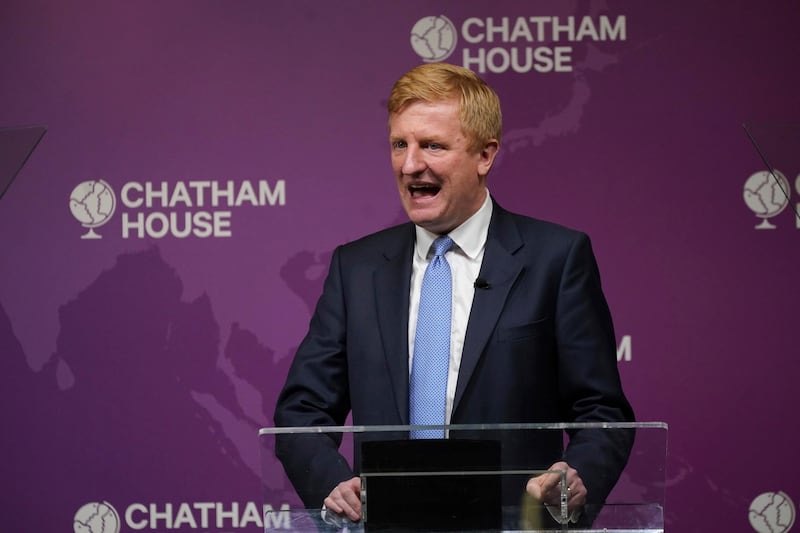UK security services are to deliver a briefing to university leaders on efforts by foreign states to gain access to sensitive research and use foreign funding as a tool of coercion or exploitation of the cash-strapped sector under a new government national security review.
Oliver Dowden, the Deputy Prime Minister, said the government had concluded that universities were both vulnerable and being targeted by hostile states. Officials have been ordered to conduct a review of protection for higher education.
“I think it's likely we're going to need to consult on proposals to address, first of all, the security of researchers given access to frontier research in sensitive sectors,” Mr Dowden said. “Secondly, this issue of universities being dependent on foreign funding, which could lead to the transfer of IP [intellectual property] or exploitation or coercion, that in turn sits alongside work we will do to look at our existing controls.”
He said export controls for sensitive industrial sectors could work as a role model for safeguarding academia. “As a first step, I will be calling in vice-chancellors to receive a Cobra briefing with our security services to understand the extent of the problem,” he added.
Mr Dowden also flagged consultations on the security of researchers in sensitive areas, increasing transparency in university funding and examining how existing laws on national security and investment could apply to universities.
Highlighting the recent flurry of moves to apply national security rules to the economic and business sectors, he said the third-level education sector was in line for similar treatment.
“Just as we are willing to intervene in the freedom of businesses, we also need to be willing to intervene if there is a clear national security risk that we need to address,” he added.
Campaigns have previously raised concerns about the growing influence of foreign states on British universities, including through anonymous donations to institutions and an increasing dependence on foreign students. Campaigners have also worried that research students from states such Iran have not been subject to appropriate vetting before accessing UK campuses.
Concerns have been raised about the transfer of technology and intellectual property through partnerships with potentially hostile states.
Mr Dowden’s comments came as he took questions from an audience at the London think tank Chatham House after giving a speech arguing the UK needed to bolster its economic defences.
The Deputy Prime Minister warned rising geopolitical tension was exposing the “security risks” behind globalisation, saying Britain needed to be “clear-eyed” that openness brought vulnerability as well as strengths.
While he was adamant the UK would “decouple” from the global economy, he warned Britain’s open economy was being “targeted by state-based actors and their proxies”.
“Our academic base is a jewel in our crown, with four of the world’s top 10 institutions,” he said. “Just as openness has been crucial to our economic success, internationalism has been vital to our academic prowess. The vast majority of that collaboration is to be welcomed and applauded.”
He set out a series of steps designed to improve economic security, including a review of export controls of emerging technology and the risks from UK businesses investing overseas.
The Cabinet Office will also publish a response to a review of the National Security and Investment Act passed in 2021, which will announce plans to “fine-tune” the system, including how it relates to critical minerals and semiconductors.
The government has already used the law to block a number of deals, including several involving attempts by Chinese companies to acquire assets in the UK’s semiconductor industry.
Responding to the speech, Labour’s shadow Cabinet Office minister, Pat McFadden, said the government’s approach to national security and China had been “marred by inconsistencies” and “left the UK vulnerable to threats” such as cyber attacks.
He added: “Labour would ensure the UK would make the most of the fantastic technology and innovation we have while maintaining and bolstering our national resilience.”






